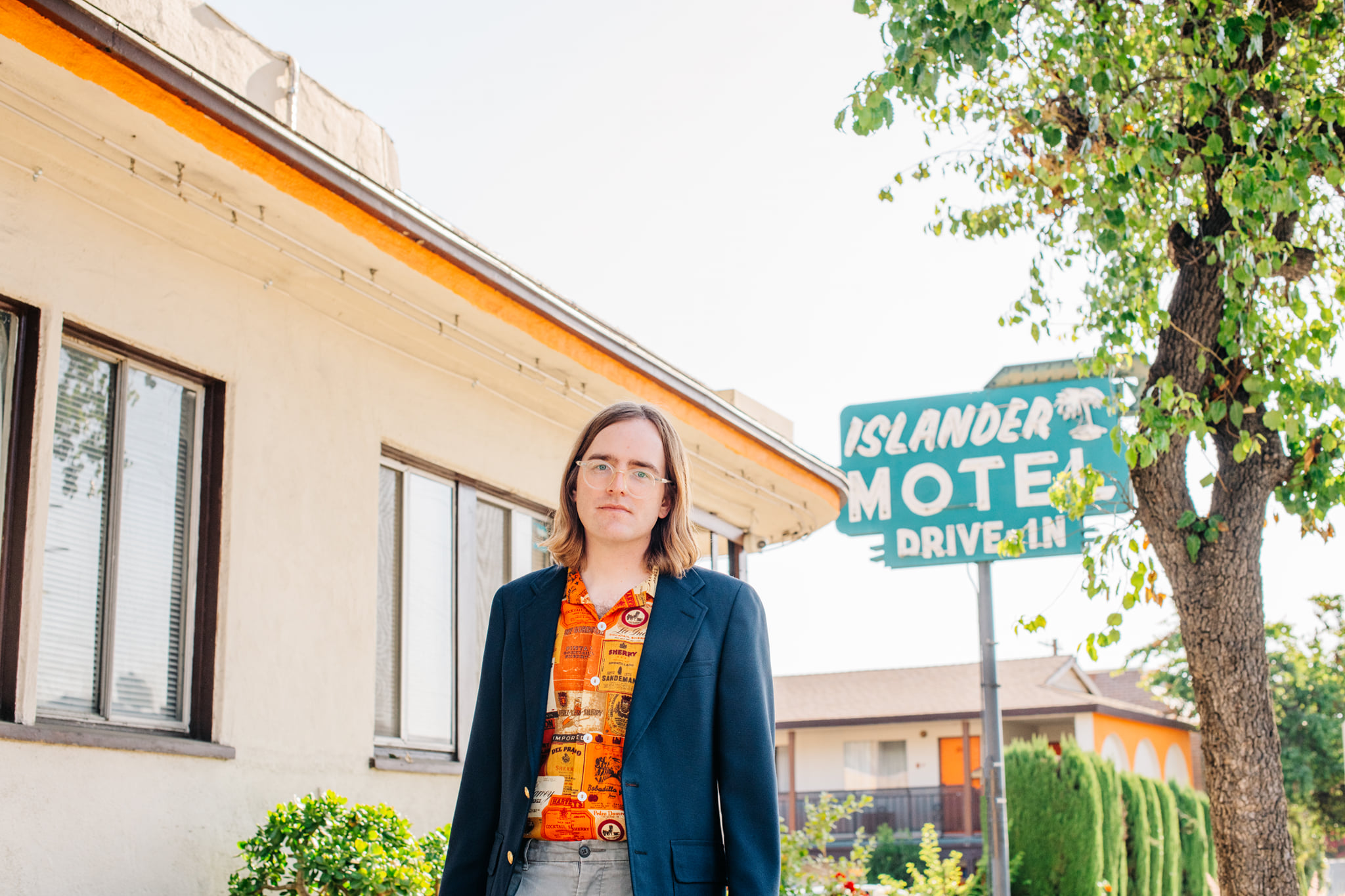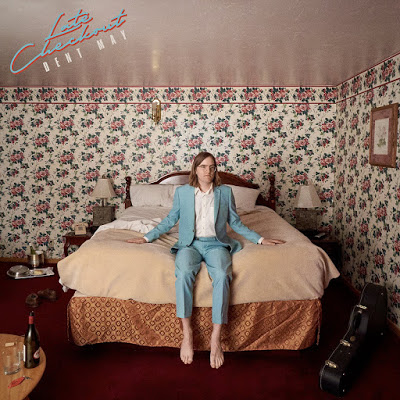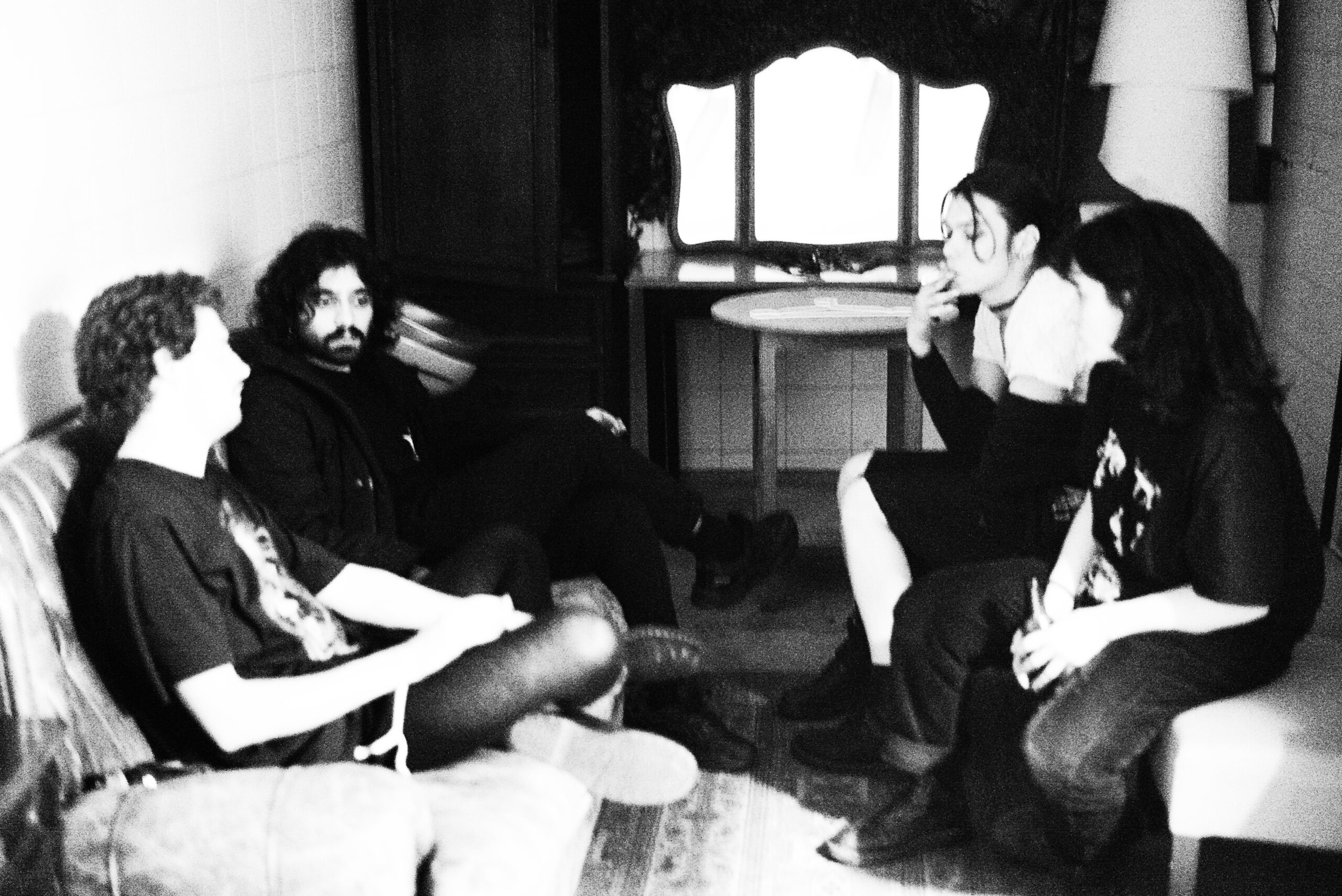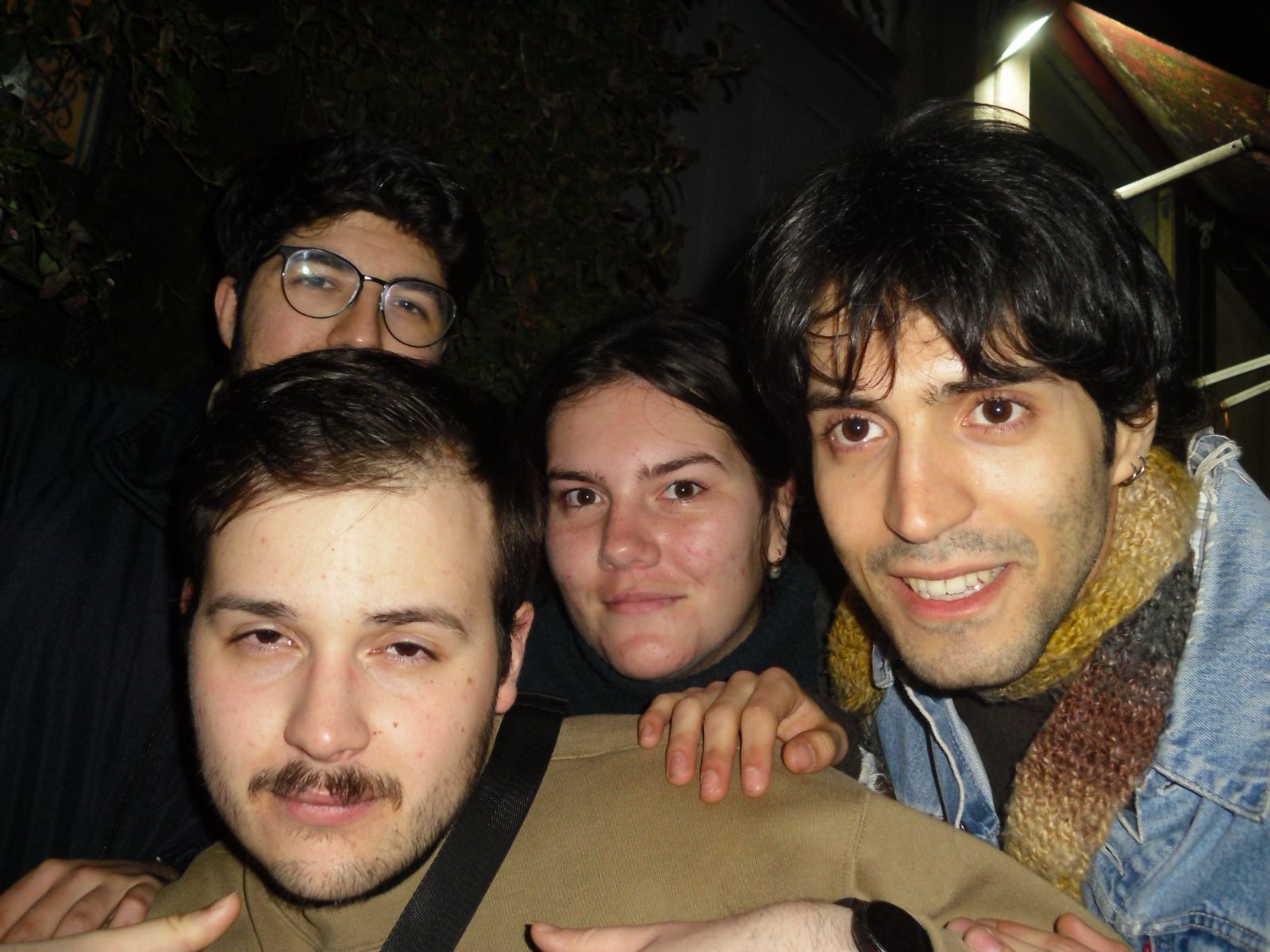
Dent May in interview: “Late Checkout is a metaphor for going through life”
Dent May in interview: “Late Checkout is a metaphor for going through life”

Dent May in interview: “Late Checkout is a metaphor for going through life”
You may have heard on some underground radio stations songs like “Across the Universe” and “Face Down in the Gutter of Your Love”. These songs, both from Across the Universe (2017) and played by Dent May, multi-instrumentalist living in LA, really get stuck in your head for weeks. Late Checkout is another round of sophisticated and sunny and pop songs, and Dent’s fifth and most complex record so far.
The Mississippi-born artist describes himself as a hotel bar lounge singer and aspiring daytime talk show host, smoothly building a career that has spanned more than a decade. His first record, The Good Feeling Music of Dent May & His Magnificent Ukulele, was released in 2009 by Paw Tracks, a label created by Animal Collective. The debut album was followed by records like Do Things (2012), Warm Blanket (2013) and Across the Multiverse (2017), as well as a hundred concerts between Chicago and Shanghai.
We spoke with Dent May about is new recording studio Honeymoon Suite, the themes and inspiration behind Late Checkout, his dream collaboration partner, being part of Carpark family, and much more. Read the full interview below.
You recorded Late Checkout in your built from scratch studio, Honeymoon Suite, and invited several other musicians to help you – string players, a horn section, background vocalists, and a pair of auxiliary drummers to play on the album – instead of producing in the comfort of your home. How would you say Late Checkout has evolved from your previous records?
Dent May (DM) – One thing that’s been evolving is my love for and knowledge of music production and having access to more of the gear I share with my studiomates. I used to record with just one very cheap microphone on everything, and now I have access to different ones, like my 1970 Neumann U87 which I love very much. I also tried to simplify the arrangements a bit. There’s still a lot of horns, strings, harmonies and more, but in the past it was more like “check out this wild and crazy arrangement” and now it’s just there to serve the song.
Since you made a conscious decision to slow down and pay attention to your songwriting on this album, enjoying the little things that life in LA has to offer, do you consider Late Checkout as your most personal record?
DM – I think they’re all very personal. Slowing down the songwriting process is more about the craft and making sure every word and note feels right. In the past I might take one pass at the lyrics, usually at the very last minute and record them. Now I keep notebooks and google docs of lyrics and go back and tweak them sometimes for months before recording a song. That said, sometimes a song gets written very quickly and doesn’t change at all. I’m not trying to force anything.
The album title, where does it come from? You talk a lot about a hotel-related world, even describe yourself as a hotel bar lounge singer.
DM – I’ve always loved hotels, especially the run-down motel variety you find on every highway exit across America. I collect the stationery from different hotels I stay in, which inspired the first song on the album. Late Checkout is when you call down to the lobby and ask to stay an extra hour or so. It’s a specific hotel reference but also a metaphor for going through life, when you know something good can’t last forever but you want to hold on to just one more moment of it.
Late Checkout is an album that left us very optimistic, with songs like “Full Speed Ahead”, “Sea Salt & Caramel”, and gloomy at the same time, listening to “Didn’t Get the Invite”, “Pour Another Round” and so on. How does it make you feel?
DM – Life is bittersweet. I think all of my songs sit somewhere in between happy and sad, which is sort of how I’m feeling all the time. I don’t think happiness is possible without sadness, so it’s about embracing the melancholy as a necessary aspect of being human.
The artwork of this album is quite colorful, with a vintage aesthetic, as your promotional photos and the funny odd videos of your singles. Why this attraction for such a vibrant and dynamic world?
DM – In addition to being a songwriter, I think of myself as an old school entertainer. I’ve always admired artists who build their own aesthetic world that the audience gets to live in for a bit, and I want people to have fun when they check out what I do. I think the tone of the videos matches the songs. The “I Could Use A Miracle” video is funny but also sad. It’s about being a loser.
 |
| Late Checkout’s artwork |
When it comes to sitting down and writing a song, where do you tend to start?
DM – I usually start with a title. I have long lists of potential titles and lyrical phrases in my notebooks and on my phone. To me, a song is more than just words set to music. It’s an idea, so it’s important I have a reason to write the song, to tell the story. Then I’ll come up with chord progressions and rhythms and try out the potential titles and lyrics I have saved and I’ll try to sing the words in a really twisty, interesting melody. That might become the refrain or the hook, and I’ll go from there. On the other hand, sometimes songs just happen really fast and I don’t have time to think about it. “Sea Salt & Caramel,” for example, happened in a flash.
Late Checkout seems to be your most classic pop influenced album, sometimes reminiscent of Pet Sounds. Where did the inspiration to write it come from?
DM – I’d say the inspiration just comes from many years of listening to music. I do love classic songwriting, but I also wanted to strip away some of the idiosyncratic style and let the songs speak for themselves. Sometimes I listen back to my old music and think, “wow, you tried to stuff way too many ideas into that one track.”
If you had to name a song that you found most difficult to record on Late Checkout, what would it be?
DM – “I Could Use A Miracle” and “Bless Your Heart” were both difficult to write. I had the choruses and couldn’t get the verses to work, so my friend Jimmy Whispers helped me finish writing them. I had spent many months trying to write different verses to those songs. but once I asked Jimmy to help, we finished both of them in like 30 minutes.
How has Late Checkout been received by the press and by your fans?
DM – I’m not sure! I think there are some people who enjoy listening to it.
You collaborated in the last couple years with artists like Frankie Cosmos, Okey Dokey and BOYO. If you could work with anyone either alive or dead, who would it be?
DM – I’d like to go back in time to 1970s France and hire Jean-Claude Vannier to arrange my album.
What is your favorite song you have ever written?
DM – I’m not sure. Deep down I sort of hate all of them, which is the only reason I keep going trying to write more of them.
Do you feel that this year you had the opportunity to listen to more music? Was there a particular album that you really enjoyed?
DM – I wouldn’t say I listened to more or less music this year. I’ve been listening to a lot of music without words to get my head out of songwriting and more into soundscapes. Stuff like film soundtracks and library music from Tangerine Dream and Alessandro Alessandroni, new age music like Steve Roach and Constance Demby. I’m actually heavily getting back into synthesizers, so we’ll see if that goes anywhere.
We read in a past interview that you rarely read a whole book, although the idea for Across the Multiverse came from a book. Did you use the confinement time to read some books and come up with new song ideas?
DM – That’s funny, I don’t remember saying that. I studied literature in college and worked at two independent bookstores, so I read whole books all the time, but it’s true I’ll often give up and not finish something if I’m not feeling it. I think I went through a period when I was smoking too much weed and didn’t read that much. I’ve been reading a good bit lately— Heads: A Biography of Psychedelic America by Jesse Jernow, The Library Book by Susan Orlean, The Parable of the Sower by Octavia E. Butler, Inherent Vice by Thomas Pynchon and I just picked up Unassigned Territory by Kem Nunn which I’m excited to dive into.
Your last couple albums were launched by Carpark. Which label artists do you most identify with?
DM – I’ve enjoyed getting to be buds wit Fat Tony. As a southerner, I appreciate that he’s from Houston, TX, and reps it hard. People think of him as a rapper but he’s really into country, punk and everything else which is reflected in his music, and I relate to that a lot. Of course Chaz from Toro y Moi is great, and it was really fun getting to know early Carpark artists like Dan Deacon and Beach House back in the day. I love Carpark!
Late Checkout was released in late August via Carpark Records and can be purchased at the artist’s Bandcamp. You can listen to the full album below.


